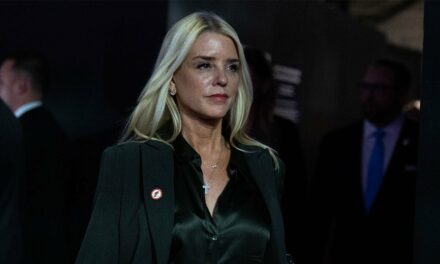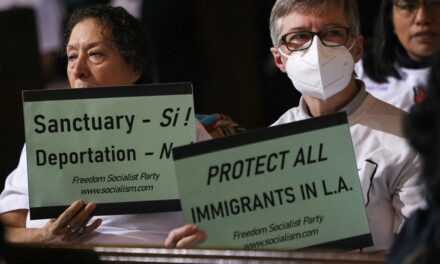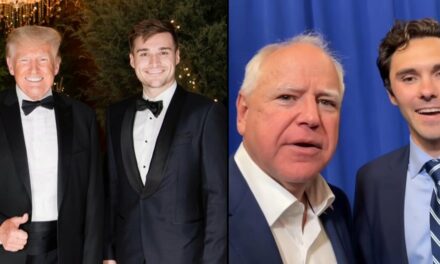We support our Publishers and Content Creators. You can view this story on their website by CLICKING HERE.
The drama and legal saga adjacent to Hunter Biden’s conduct isn’t over yet.
Lawyers for the two IRS whistleblowers in his tax evasion case contend it would be bad news for future whistleblowers if their defamation case against the prominent lawyer for President Joe Biden’s son is dismissed.
In what was likely a reference to the elder Biden’s recent pardon of his son, their 58-page response Wednesday to a motion to dismiss their $20 million defamation case says: “Plaintiffs seek no pardon because they committed no crimes. They merely seek to restore their reputations after Lowell so blithely tarnished them.”
Biden pardoned his 54-year-old son in a surprise move Dec. 1 after he had been convicted, but not yet sentenced, on gun charges in Delaware and tax charges in California.
In mid-November, Abbe Lowell, the younger Biden’s lawyer, filed a motion to dismiss the defamation lawsuit in U.S. District Court for the District of Columbia.
Both Gary Shapley, an IRS supervisory special agent, and Joe Ziegler, an IRS special agent, provided information to the House Ways and Means Committee about Biden’s tax case.
“If the powerful can defame whistleblowers with impunity, who will feel safe coming forward?” Shapley and Ziegler ask in their court filing, adding: “Allowing such egregiously false attacks to go unchecked will send a chilling message to those who might one day be called to serve the public interest. This lawsuit seeks to ensure that whistleblowers can fulfill their role without fear of unjust retribution.”
Lowell, in news accounts and responses to the House committee, accused the two IRS agents of breaking the law by leaking confidential tax information and called for their prosecution.
Their response, filed Wednesday, says that “Lowell’s defenses collapse under scrutiny.”
“He declared that the plaintiffs’ actions were ‘clear-cut crimes,’ that their disclosures had ‘no justification or cognizable legal protection,’ and that they provided information ‘not already in the public domain,’” Shapley and Ziegler say of Lowell. “These unqualified assertions betray any claim to opinion, particularly given Lowell’s expertise as a white collar defense attorney.”
Their response to the motion to dismiss the defamation case against Lowell continues:
Lowell’s claim of lack of malice fares no better. His own letter to Congress, in which he accused the House of using its investigation ‘to dump wholesale protected tax information about Mr. Biden on the public,’ demonstrates that Lowell knew Congress, not the plaintiffs, had already made the information at issue public.
Lowell is a partner in the Chicago-based law firm Winston & Strawn. His motion to dismiss asserted that Shapley and Ziegler made “unprecedented public comments on the strength of the evidence, even while charges [against Hunter Biden] were pending.”
“Plaintiffs may feel very strongly that they acted lawfully, but Lowell holds very different views—and has every right to say so,” his lawyers told U.S. District Judge Richard Leon in the motion to dismiss.
The IRS agents’ defamation complaint, filed in September, alleges that Lowell falsely accused the two whistleblowers of violating grand jury secrecy rules and laws to protect taxpayers. Their lawsuit alleges that Lowell made statements encouraging the elder Biden’s government to prosecute Shapley and Ziegler.
Lowell’s office didn’t respond to email or voicemail inquiries seeking comment on this story by publication time.

 Conservative
Conservative  Search
Search Trending
Trending Current News
Current News 





